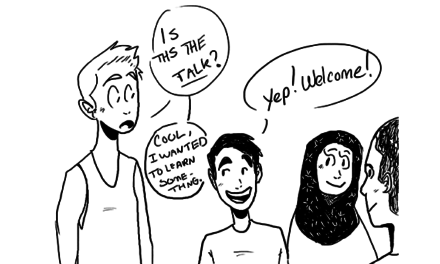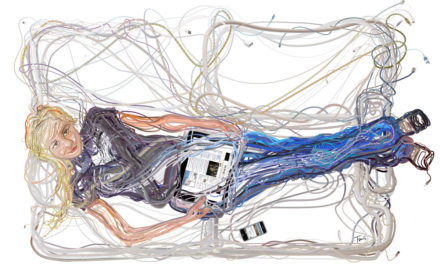We agree that sexual assault is a growing problem on campuses across the country, including our own. Emory has responded with a variety of strategies. The Respect Program continues to organize campus-wide sexual assault awareness and training as well as provide crisis services and advocacy to those in need. The Red Zone Rally and Take Back the Night help to spread a similar message and student-led organizations such as Sexual Assault Peer Advocates group (SAPA), the Alliance for Sexual Assault Prevention (ASAP), the Greek Sexual Assault Prevention Initiative and Grads Against Violence have all ramped up student involvement.
Some suggest that these efforts are insufficient and that we should shift to a strategy that increases the University’s investigation mechanisms; however, hoping that harsher punishments will act as a deterrent does not address the root of the issue. Without a focus on prevention and victim response measures, an emphasis on retribution risks more harm than good.
Scholarly consensus has emerged that the problem is largely cultural, and Emory University must have a more inclusive response to sexual assault cases. As Owen Jones, professor of law and biology, writes, “Social conditions, such as cultural norms, rules and prevailing attitudes about sex, mold and structure the behavior of the rapists.” As it becomes increasingly clear that sexual violence is a symptom of cultural circumstances, the University should do everything it can to change that culture.
Some may argue that punishment mechanisms can change the decision calculus of the perpetrator – that if they perceive the consequences of sexual assault to be high, then they will not commit the act. It is unclear what the University could do that is of greater consequence than what the legal system could accomplish, absent denying the alleged perpetrator’s rights. RAINN, the largest anti-sexual assault organization in the United States, estimates that approximately 56 percent of sexual assault occurrences go unreported and fewer than 3 percent of rapists ever serve a day in jail. Given such low rates of reporting, prosecution and punishment in government settings, there is no reason to believe that University rates would be higher. How would the University determine if the alleged aggressor was guilty? Would the process be similar to Honor Council proceedings, or would it involve external legal authorities? How would the consequences vary for different incidents of sexual misconduct?
If our default becomes a retributive model, the University must work with external legal authorities, and it could discourage reports. One reason that the estimated report rate is so low is because victims do not want to involve the police. There are a multitude of reasons, but especially worrisome is the thought that victims may not want to disclose surrounding circumstances such as unlawful activity of underage drinking or drug use. Using an internal investigation may alleviate some of these concerns but runs into its own problems regarding neutrality, evidence collection and assessing the guilt of the alleged perpetrator.
Added punishment without a greater likelihood of prosecution does nothing to change the decision-making calculus, but a new enforcement program risks creating false hope that reporting incidents to the Emory authorities will result in substantive action against the aggressor. Emphasizing that these incidents will be reprimanded and then failing to follow through could be more psychologically damaging than never having promised punishment in the first place. And if the University does not follow through on its punishment policies, then it fails to reflect a stronger stance, making these policies look symbolic and hollow.
Instead of focusing on punishment mechanisms, which could have unintended consequences without substantive progress, the University should continue and increase its support for sexual assault awareness, prevention and response programs. These are the types of programs and initiatives that work to change the culture on campus; one that strays from sexual assault acceptance and more towards active prevention of unwanted sexual advances. Despite the current progress that these anti-sexual assault initiatives are making, they will not get very far absent student involvement and acceptance. To get involved, please visit http://respect.emory.edu or come out to the Take Back the Night Event on Monday, Oct. 28 from 5:30 p.m. to 7:30 p.m. at the Dobbs University Center Terraces. In order to achieve the University’s goal of no sexual assault on Emory’s campus, we cannot rely on calls of greater punishment. Rather, we should all work together to change the culture.
Senior Vice President and Dean of Campus Life Ajay Nair has challenged the community to work to eliminate sexual assault from our campus. While this is a laudable goal, it is one that can’t be achieved through retribution. It can only occur if we commit to challenging a culture that valorizes sexualized violence. That means enhanced support for programs like Respect and SAPA must be at the forefront of our effort instead of a retributive justice model that will do more harm than good.
If you or someone you know has been affected by sexual violence, you have support at Emory. For confidential support, contact Lauren Bernstein at (404) 727-1514 or respect@emory.edu.
For the opposing opinion, click here
The Emory Wheel was founded in 1919 and is currently the only independent, student-run newspaper of Emory University. The Wheel publishes weekly on Wednesdays during the academic year, except during University holidays and scheduled publication intermissions.
The Wheel is financially and editorially independent from the University. All of its content is generated by the Wheel’s more than 100 student staff members and contributing writers, and its printing costs are covered by profits from self-generated advertising sales.





“Instead of focusing on punishment mechanisms, which could have unintended consequences without substantive progress, the University should continue and increase its support for sexual assault awareness, prevention and response programs”
So zero-tolerance for smokers, but we must tread more lightly with rapists and understand that it is a “cultural issue”. Marijuana, on the other hand, now that’s a crime.
Place your own headline and face round the Private label rights along with advertise your own self additionally a person site.
love this celine shoe..so cute..thanks…GREAT SELLER….